In recent days, stories have appeared highlighting Jamal Khashoggi’s ties to the Muslim Brotherhood and arguing, as one put it, that “in truth, Khashoggi never had much time for western-style pluralistic democracy…for Khashoggi, secularism was the enemy.” Amplified by pro-Saudi social media and echoed by right-wing commentators in the United States, the subtext of these stories seems to be that the United States should be cautious in championing Khashoggi’s cause, because he was less of a liberal voice than he seemed. At the more extreme edge of this media campaign, there’s the implication that Khashoggi was an extremist and that those who condemn his apparent murder are serving an Iranian agenda to break up the U.S.-Saudi alliance.
I won’t address such conspiracy theories, but a few points can shed some light and context on this rumor mill:
1Yes, Jamal Khashoggi had many friends among the Muslim Brotherhood and, as his colleague David Ignatius reported days after his disappearance, had joined the movement himself as a young man before apparently shifting away from it later in his career. No one who knew Jamal at all is surprised by these facts, no matter with what lurid framing they are now “revealed.” Whatever sympathies and associations he may have had, they do not change the apparent fact that Jamal Khashoggi was kidnapped, murdered, and dismembered to silence his freedom of expression. Those on the right who have spent decades fighting for free speech on campus will leap to tell you, correctly, that freedom of speech demands respect regardless of the political valance of the views espoused—and that protecting the expression of unpopular views that challenge current political correctness is the acid test for the security of this right overall. So even if you believe that Jamal Khashoggi was a full-bore Brotherhood member with an agenda of Islamization for the Arab world, you should still condem his apparent assassination for the crime of speaking his mind.
2This “whisper campaign,” as the Washington Post deemed it, has noted Khashoggi’s embedded reporting about the Arab mujahideen fighting the Soviets in Afghanistan in the 1980s, including Osama bin Laden, as evidence that Khashoggi should be understood as hostile to the West. This is an anachronistic view. Khashoggi was reporting on these fighters for an official Saudi newspaper, apparently with some degree of admiration at their faith, commitment, and moxie, at a time when their efforts were supported by the Saudi government. Other Western journalists and commentators—not to mention politicians—were likewise enamored with the mujahideen, during a period when the Reagan administration and Congress worked hand-in-glove with Saudi Arabia to support these insurgents against Soviet occupation. As Ignatius makes clear in the piece cited earlier, Khashoggi “grew wary” of bin Laden and his violent intent toward the United States and the kingdom, and believed Saudis and Arabs needed to be forthright in acknowledging bin Laden’s responsibility for the 9/11 attacks.
3Saudi Arabia’s official attitude toward the Muslim Brotherhood today is that the group is a terrorist organization—but this is a relatively recent policy innovation. For decades, while the kingdom was competing for influence in the Arab world with the secular nationalist regimes of Egypt, Iraq, and Syria, Saudi Arabia welcomed to its soil Brotherhood members who were persecuted or unsafe in their home countries. Within the context of the kingdom’s severe state Islamism—forged through the alliance of Ibn Saud and the cleric Muhammed ibn Abdul Wahab—the Brotherhood was acceptable, since the movement’s leadership argued that rulers who implemented Islamic law had religious legitimacy and deserved public support. And the movement’s approach to Islamization through preaching and service did not challenge the authority of the Saudi government and was seen by many Saudis, Jamal Khashoggi apparently included, as a pathway to religious re-interpretation that would enable Saudi Arabia to undertake important societal reforms.
With the emergence of reformist Islamist clerics within Saudi Arabia, the rise of Turkey’s Recip Tayyip Erdoğan, and especially after the Arab uprisings of 2011, the kingdom and other traditionalist Arab governments came to view the Brotherhood rather differently. After Brotherhood political parties won elections in Egypt and Tunisia (pluralities, not majorities, in both places), these governments came to understand the Brotherhood as an existential threat: a model of governance that challenged their own authoritarian, monarchical Islamism with populist Islamism rooted in the democratic process (not civil liberties, but the monarchies don’t care much about civil liberties either). Thus began a campaign to re-brand the Brotherhood as a terrorist organization, ideologically indistinguishable from al-Qaida, a threat that must be rooted out with brutal discipline. The kingdom backed Egyptian general Abdel Fattah el-Sisi in overthrowing the (increasingly intolerant) elected government in Egypt and implementing a crackdown that included a massacre of over 800 Egyptians and the imprisonment of tens of thousands. Notably, despite the financial and political commitment King Abdullah of Saudi Arabia made to ousting the Brotherhood in Egypt in 2013, the kingdom itself did not declare it a terrorist group until nearly a year later.
4There’s also a degree of willful blindness and hypocrisy in the kingdom’s current insistence that the Brotherhood presents an intolerable and existential threat: Brotherhood-linked politicians and parties sit in parliaments in Saudi Arabia’s close partners Bahrain and Kuwait, the Brotherhood party in Jordan has long been part of the political scene as a cranky but loyal opposition, and in Morocco the Brotherhood-linked Justice and Development Party has led the ruling coalition for the last two governments. All of these countries are close Saudi partners, close American partners, and strong allies in the fight against violent Islamist extremism. When I have inquired with Saudi and Emirati officials about how their view of the Brotherhood as an existential ideological threat relates to their friendly ties with governments that incorporate Brotherhood actors, they say that each Arab country makes its own sovereign decisions—a view they could hardly abide by if they truly saw this movement as a terrorist organization.
All of this is not to say that the Brotherhood is merely benign, that its tenets are compatible with democracy, or anything else so simplistic. It is merely to say that the story of the kingdom and the Brotherhood is not a simple morality play, and that those claiming Khashoggi’s Brotherhood sympathies as some kind of black mark reveal nothing so much as their ignorance of the kingdom, the region, and its history.
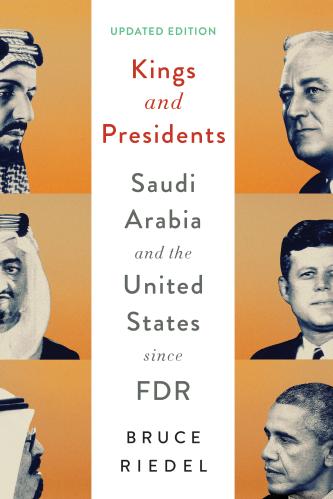
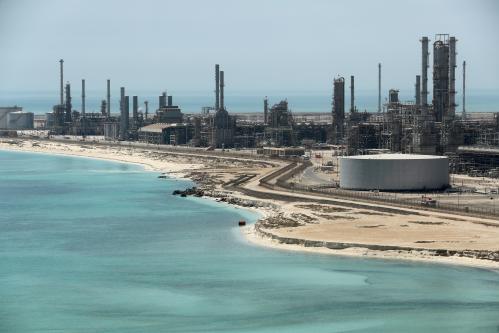
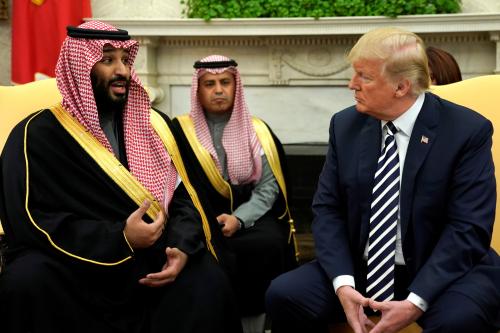
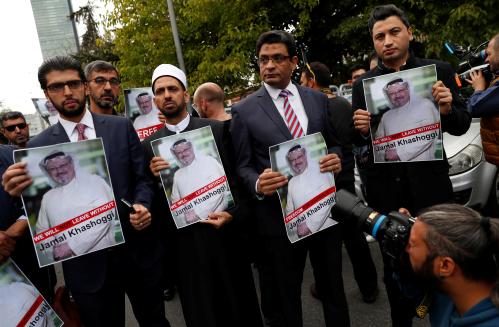


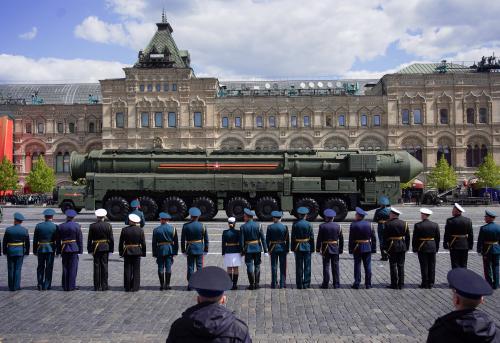
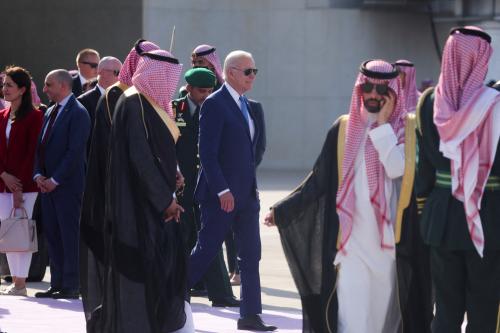
Commentary
On Jamal Khashoggi, the Muslim Brotherhood, and Saudi Arabia
October 19, 2018